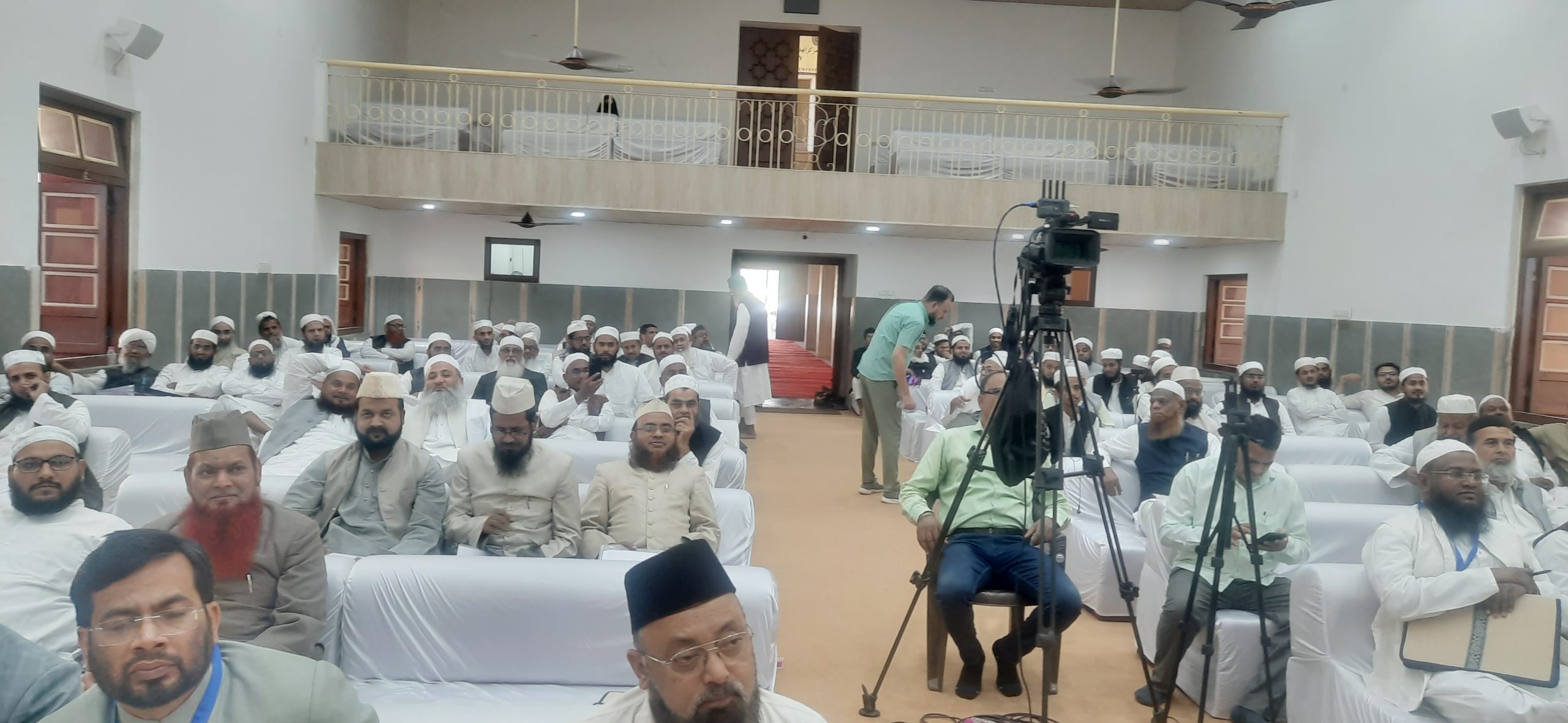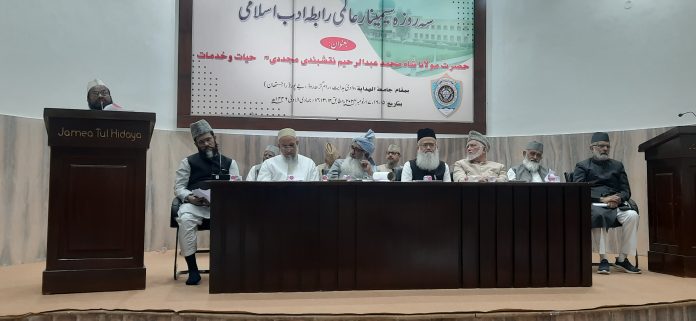– Abdul Bari Masoud
Jaipur: The Alami Rabita Adab Islami concluded a three-day seminar at Jamea-Tul-Hidaya, focusing on the life and contributions of its founder, Maulana Shah Abdur Rahim Mujaddidi (1920–1994). Maulana Mujaddidi, who founded Jamea-Tul-Hidaya in 1976, envisioned an institution that integrated Islamic education with modern academic facilities to address the challenges facing the Muslim community in India.
During the seminar, over 100 papers were presented by scholars from India and abroad, highlighting Maulana Mujaddidi’s dedication to establishing Jamea-Tul-Hidaya. Scholars noted that he held extensive consultations with prominent Islamic thinkers, including Maulana Syed Abul Hasan Ali Nadvi, over 25 years before realising his vision of a comprehensive educational institution aimed at empowering the community educationally, economically, and spiritually.
Speakers delved into Maulana Mujaddidi’s family heritage, tracing his lineage to Rohilla Pathans. His grandfather, Yusuf Ali Khan, was a successful horse trader who passed away in Junagadh, Gujarat, in 1856, receiving a royal burial. The family later settled in Jaipur under the guidance of Maulana Mujaddidi’s grandfather, Maulana Shah Mohammed Hidayat Ali, a revered Sufi, scholar, and thinker.
 Hidayat Ali recognized the potential in his grandson and bestowed spiritual leadership (Khilafat) upon him in 1951. He envisioned a revolutionary educational system combining religious and worldly knowledge. While Hidayat Ali’s efforts remained unfinished during his lifetime, Maulana Mujaddidi made it his mission to fulfil his grandfather’s dream.
Hidayat Ali recognized the potential in his grandson and bestowed spiritual leadership (Khilafat) upon him in 1951. He envisioned a revolutionary educational system combining religious and worldly knowledge. While Hidayat Ali’s efforts remained unfinished during his lifetime, Maulana Mujaddidi made it his mission to fulfil his grandfather’s dream.
Despite initial resistance from traditional religious institutions, Maulana Mujaddidi tirelessly advocated for a modernised curriculum in Islamic madrasas. When his proposals were met with opposition, he decided to create a prototype institution himself.
In 1976, he laid the foundation for Jamea-Tul-Hidaya, which he envisioned as more than just an educational institute. He planned a comprehensive campus featuring a hospital, mosque, post office, bank, retail centre, swimming pool, and residential facilities for students and staff. The institution began regular academic activities in 1986, symbolising his commitment to harmonising Islamic principles with contemporary needs.
Jamea-Tul-Hidaya continues to serve as a model for integrating tradition and modernity. Known for his humility, patience, and unwavering dedication to his community, Maulana Mujaddidi passed away in 1994.
The seminar featured five sessions, including book releases and discussions on Maulana Mujaddidi’s contributions. Distinguished speakers included Maulana Bilal Hasni, Nazim-e-Ala of Nadwat-ul-Ulama, Lucknow, and Maulana Fazlurrahim Mujaddidi, who emphasised that the concept of blending modern education with religious instruction was first introduced by Hidayat Ali.
Other speakers included Professor Waseem Akhtar, Prof. Waris Mazhari, Dr. Saeed Faizi (UK), Prof. Mohsin Usmani Nadvi, and Maulana Hassan Mahmood, among others. The Secretary of Rabita, Maulana Jafar Hassan Nadvi, delivered a comprehensive speech, while Maulana Umair Siddique presented an activity report of Rabita Alami Islami, established in 1984.
The seminar concluded on a high note, celebrating the legacy of a visionary leader whose life and work continue to inspire educational and social reforms in the Muslim community.




